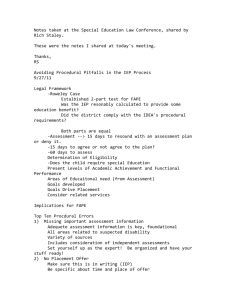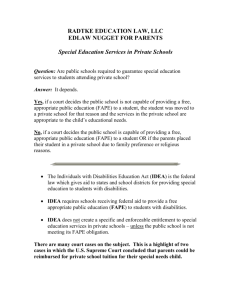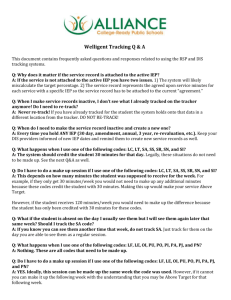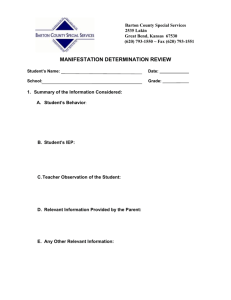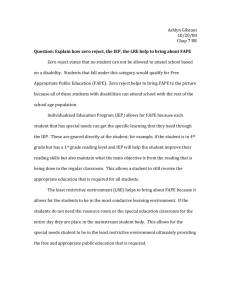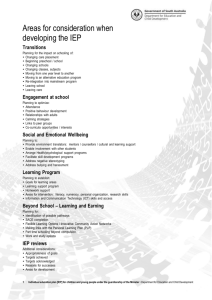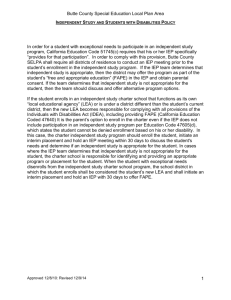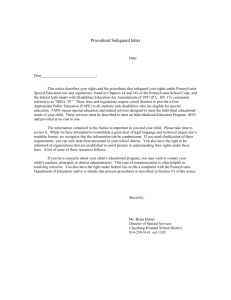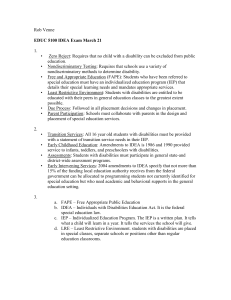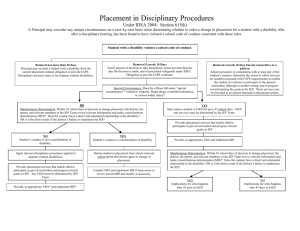Special Education: Is it for your child?
advertisement
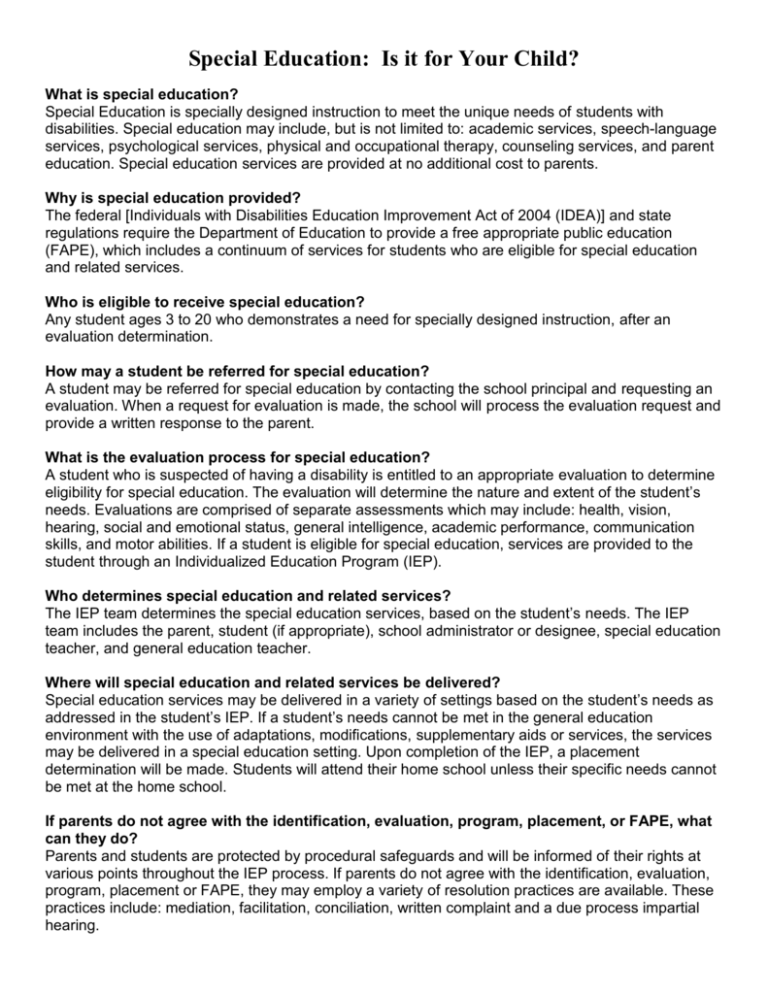
Special Education: Is it for Your Child? What is special education? Special Education is specially designed instruction to meet the unique needs of students with disabilities. Special education may include, but is not limited to: academic services, speech-language services, psychological services, physical and occupational therapy, counseling services, and parent education. Special education services are provided at no additional cost to parents. Why is special education provided? The federal [Individuals with Disabilities Education Improvement Act of 2004 (IDEA)] and state regulations require the Department of Education to provide a free appropriate public education (FAPE), which includes a continuum of services for students who are eligible for special education and related services. Who is eligible to receive special education? Any student ages 3 to 20 who demonstrates a need for specially designed instruction, after an evaluation determination. How may a student be referred for special education? A student may be referred for special education by contacting the school principal and requesting an evaluation. When a request for evaluation is made, the school will process the evaluation request and provide a written response to the parent. What is the evaluation process for special education? A student who is suspected of having a disability is entitled to an appropriate evaluation to determine eligibility for special education. The evaluation will determine the nature and extent of the student’s needs. Evaluations are comprised of separate assessments which may include: health, vision, hearing, social and emotional status, general intelligence, academic performance, communication skills, and motor abilities. If a student is eligible for special education, services are provided to the student through an Individualized Education Program (IEP). Who determines special education and related services? The IEP team determines the special education services, based on the student’s needs. The IEP team includes the parent, student (if appropriate), school administrator or designee, special education teacher, and general education teacher. Where will special education and related services be delivered? Special education services may be delivered in a variety of settings based on the student’s needs as addressed in the student’s IEP. If a student’s needs cannot be met in the general education environment with the use of adaptations, modifications, supplementary aids or services, the services may be delivered in a special education setting. Upon completion of the IEP, a placement determination will be made. Students will attend their home school unless their specific needs cannot be met at the home school. If parents do not agree with the identification, evaluation, program, placement, or FAPE, what can they do? Parents and students are protected by procedural safeguards and will be informed of their rights at various points throughout the IEP process. If parents do not agree with the identification, evaluation, program, placement or FAPE, they may employ a variety of resolution practices are available. These practices include: mediation, facilitation, conciliation, written complaint and a due process impartial hearing.

